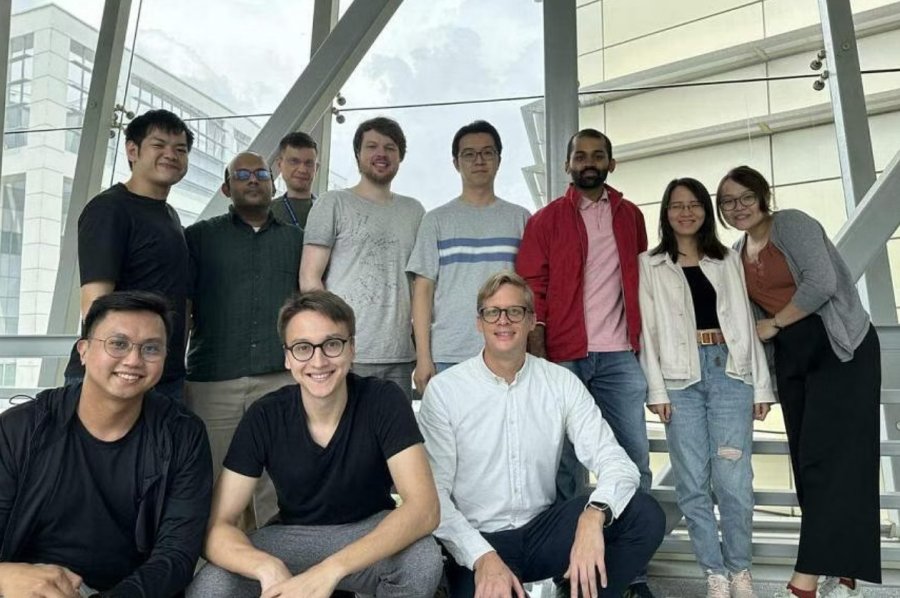August 7, 2023
SINGAPORE – The development of personalised cancer treatments will get a boost from an artificial intelligence-based method that can identify cancer mutations in DNA fragments inside tumour samples.
The method, called Variant Network (VarNet), uses deep learning to detect cancer mutations. It is developed by scientists from the Genome Institute of Singapore (GIS), a research institute under the Agency for Science, Technology and Research (A*Star).
“Cancer is generally thought to be caused by mutations in our genomes, and it’s essential to identify these mutations to tailor the most effective treatment for the individual patients,” said Dr Anders Skanderup, group leader of GIS’ Laboratory of Computational Cancer Genomics.
In line with the precision medicine approach – where medical treatment is tailored to the individual based on factors such as variations in genetics and environment – drugs prescribed for cancer treatment increasingly work only when certain mutations are present, he said.
A high level of accuracy is needed when identifying cancer mutations, he added.
VarNet is a mutation caller, which identifies mutations by sifting through raw DNA sequencing data.
Using artificial intelligence (AI), VarNet is trained to identify mutations through exposure to millions of real cancer mutations as well as to examples of false cancer mutations.
This enables VarNet to detect real mutations while ignoring false ones, Dr Skanderup told The Straits Times.
A paper published in the peer-reviewed scientific journal Nature Communications in July 2022 found VarNet often exceeded existing mutation identification algorithms in terms of accuracy.
While other AI-based methods of detecting cancer mutations exist, these rely heavily on human experts providing vast amounts of detailed training data to the models to train them to identify mutations, he said.
Deep learning – an AI method where computers are taught to process data in a way that mimics the human brain – allows VarNet to distinguish between real and false mutations, essentially teaching itself the rules of doing so, with minimal human intervention.
The paper’s first author Kiran Krishnamachari – an A*Star Computing and Information Science scholar affiliated with GIS – noted VarNet is able to learn to detect mutations from the raw data in a manner that a human expert would do when manually inspecting potential mutations.
“This gives us the confidence that the system can learn relevant mutational features when trained on vast sequencing datasets, using our weak-supervision strategy that does not require excessive manual labelling,” he said.
While humans are able to accurately identify cancer mutations, this is often a time-consuming task.
An AI-based approach could potentially perform the same task across the entire three billion nucleotides in the human genome in a fraction of the time it would take a human expert, said Dr Skanderup, who is also the paper’s co-author.
For the research paper, VarNet was trained on data from over 300 matched normal and tumour genomes comprising seven cancer types – lung, sarcoma, colorectal, lymphoma, thyroid, liver and gastric.
The training data was generated from whole-genome sequenced tumour data from hospitals and research institutes here, including National University Hospital Singapore and the National Cancer Centre Singapore, as well as United States cancer genomics programme The Cancer Genome Atlas.

Mr Kiran Krishnamachari (in red jacket) and Dr Anders Skanderup (squatting, in white shirt), together with scientists from the Genome Institute of Singapore. PHOTO: GENOME INSTITUTE OF SINGAPORE
The source code for VarNet has already been made available online to the international research community, whose members are already using it and reporting their findings in papers, said Dr Skanderup, adding that his team is also working with others in testing the technology in clinical research projects.
While AI methods such as VarNet will not replace human doctors, they can provide doctors with more accurate and detailed information to act upon, he said.
“We are very excited about potentially testing it further and eventually moving it into clinics to more accurately tailor treatment strategies for patients.”
Cancer is the most common cause of death in Singapore, accounting for 23.9 per cent of deaths here in 2022. There were 80,753 cancer cases reported here between 2016 and 2020, according to the Singapore Cancer Registry Annual Report 2020.


